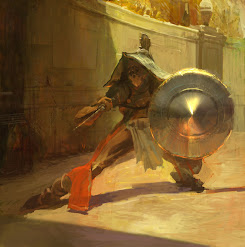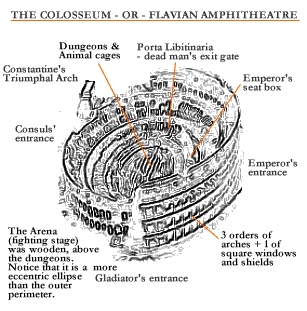Dewey was a psychologist you know. What if he treated people who knew things humanity wasn’t supposed to know? What are the classifications really for? What dread information may be contained in the books we read that he couldn’t risk getting out?
Thoughts of otherdimensional horrors abound (and, perhaps, viral memetics in a Delta Green / CoC Modern setting), especially when used in conjunction with the quotation from H.P. Lovecraft’s story "The Call of Cthulhu":
The most merciful thing in the world, I think, is the inability of the human mind to correlate all its contents. We live on a placid island of ignorance in the midst of black seas of infinity, and it was not meant that we should voyage far. The sciences, each straining in its own direction, have hitherto harmed us little; but some day the piecing together of dissociated knowledge will open up such terrifying vistas of reality, and of our frightful position therein, that we shall either go mad from the revelation or flee from the deadly light into the peace and safety of a new dark age.
Do the DDC numbers contain and entrap certain forms of knowledge, confining them to the printed page? Or is it a mystical system of subconscious manipulation, classifying and keeping apart fields of information that would be dangerous if combined, conditioning us to do the same? And what if the modern trend away from generalization and toward extreme specialization is a side-effect? Or is the DDC protecting us from something even more sinister, a viral memetic being that, similar to the Hounds of Tindalos who travel through corners in space, seeps into the corners of our minds.
And then there’s the Chautauqua Literary and Scientific Circle, founded by John H. Vincent--a study group that undertook a four-year program of guided reading for ordinary citizens. Did you know that Vincent was struck by the vision of a world college as described in Sir Francis Bacon’s utopia in The New Atlantis? And of course you know that Sir Francis Bacon was linked to the Rosicrucian Brotherhood, and by association the Templars, and was a Secret Mason. All that secret knowledge ... especially if, as some say, Bacon was actually an incarnation / alias of the Comte de Saint-Germain, among other things.
What does that have to do with anything? Well, guess who was also part of this cozy little cabal ... I mean, circle. That’s right. Melvil Dewey.
What if this circle was actually conducting a controlled experiment to see which bits of knowledge could be safely combined? What happened to those subjects (excuse me, patrons) who did piece together rather terrifying bits of "dissociated knowledge"--what became of them?
And let’s look at that name, "Chautauqua." If that doesn’t sound Lovecraftian, I don’t know what does. Perhaps that’s the name of the being / memetic virus Dewey was trying to bind?
"I had a strict rule, which I think secret services follow, too: No piece of information is superior to any other. Power lies in having them all on file and then finding the connections. There are always connections; you have only to want to find them."
-- Casaubon, in Foucault's Pendulum by Umberto Eco



